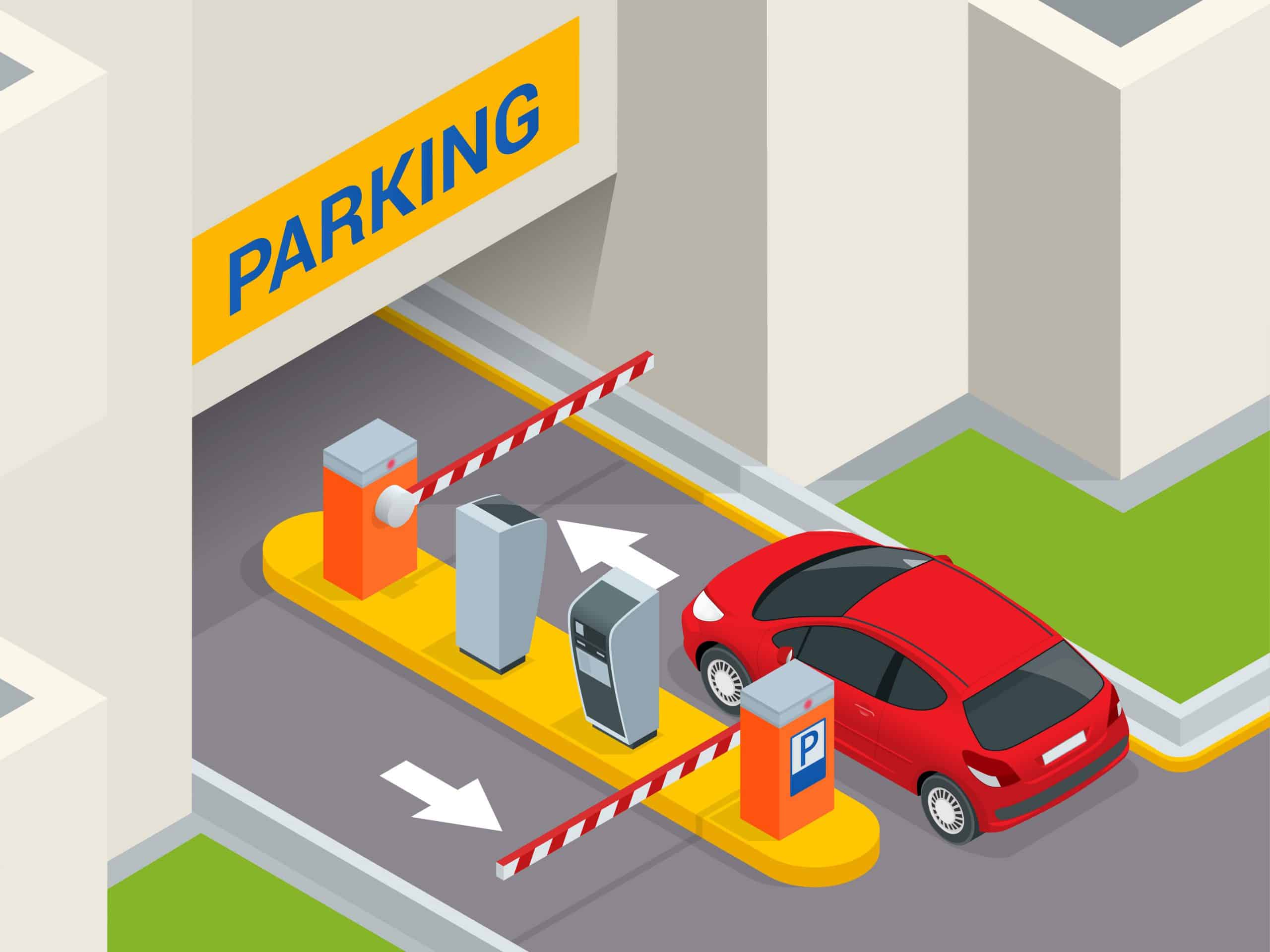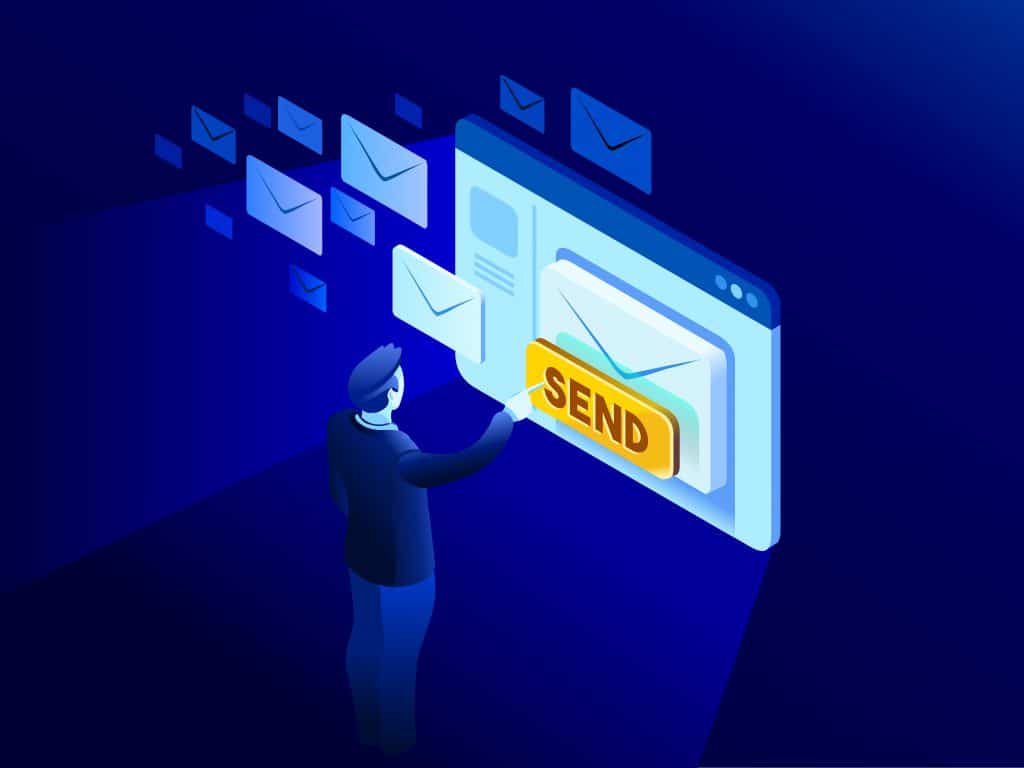What Is a Parked Domain?
- By Douglas Moore
- Last Updated On January 1, 2021

With most projects, you first come up with a concept, then develop its various elements, maybe put a team together, and finally – give it a name. Welp, this isn’t always the case. When it comes to domain names, for instance, it’s not rare that the name precedes the rest of the website.
This is because great domain names are hard to come by. The short, catchy ones are often taken or quite pricey. And sometimes the unthinkable happens: you’ve come up with a name for an online magazine, for instance, but it’s been snatched up by the time you gathered the strength and the time to create the website and content for it.
This is where the concept of parked domains saves the day. Even if you aren’t ready to build a website, but have come up with a perfect name for it, you can buy the domain and “park” it for later use. By purchasing a domain you like ahead of time, you’re making sure that no one steals it in the meantime. It also gives you some additional motivation to get cracking on that new website.
In this article, we’ll go over what a parked domain is and why you may wish to get your very own parked domain. We’ll also cover what it means when a domain is parked for free, a service that some domain registrars offer to their clients.
What Is a Parked Domain?
A parked domain, or domain parking, is when you register and purchase a domain name without connecting it to any sort of a hosted platform, like a website or an email service. You may wish to get a parked domain for different reasons, like reserving a domain for later use, creating an alias for your existing main domain, or to prevent cybersquatting. We’ll go over the uses of a parked domain in greater detail in the next section.
Oftentimes, a parked domain is marked with a holding page or a landing page. These pages can be monetized or non-monetized. Non-monetized parked domains occur when your website is not ready for launch, and the parked domain is simply waiting to be put to use. In this case, when someone tries to access your parked domain they’ll see a message that says something like “Coming Soon,” “Under Construction,” or “Work in Progress,” accompanied by a little construction sign.
Monetized parked domains are when you place an ad on the landing page of your other website, brand, or third party. Keep in mind that if you want to have any sort of landing page, regardless of whether it’s monetized or non-monetized, you’ll need to have some sort of hosting for the domain.
Still, some hosts will keep an “Under Construction” sign on the landing page even if you haven’t gotten hosting yet. Once you get hosting, activate the domain, and build the website, you can take it live.
Why Would You Need a Parked Domain?
There are plenty of reasons why you may wish to get a parked domain. While we touched up on some of them, let’s flesh it out a bit.
Reserve the Name for Later
One of the main reasons for getting a parked domain is saving it for later use. You know you want to build a website, and you’ve found the perfect domain name – but you’re not quite ready to publish it, or even to get started on it. However, you also don’t want anyone snatching up your perfect domain name by the time you do. So what do you do? Purchase, register, and park that domain. You can direct it to your hosting account when it’s ready to go live.
Monetize the Domain
There are several ways you can monetize a parked domain – even if you do plan to eventually use it to build your own website.
Firstly, you can display third-party ads on your parked domain. When a user visits the landing page, they may click on one of the ads – which will generate income for you. This way, a steady trickle of passive income will allow you to earn money while plucking up the strength to build a website.
Secondly, you may wish to purchase a domain that seems lucrative in order to flip it. If you find one – or even many – domains that you think will become valuable in the future, you can purchase them and then resell them for a profit. The domain will remain parked until someone makes an offer you can’t refuse.
Some people also buy a domain that’s similar to the name of a popular domain or brand, but with a misspelling or different domain extension. When visitors end up on their website by accident, they can take advantage of the traffic to generate income. However, this isn’t really advisable, as it can cause you legal trouble.
Plus, if you just change the domain extension of a trademarked brand’s website, you’d basically be cybersquatting, which there are laws against. In fact, a good idea for you to get a parked domain is to prevent cybersquatting from happening to you. So…
Prevent Cybersquatting
When someone cyber squats on a domain that’s similar to your main website and brand, not only would they be benefiting from your potential traffic, but they may also try selling you the domain for a ludicrously inflated price.
To prevent this, you may need to purchase domains that are similar to that of your main site before things turn ugly. This doesn’t mean that you should buy all domains with misspellings of your domain name, but just secure several versions of your domain with different extensions (gTLDs). So if your website is example.com, you may also wish to get example.net and example.io.
Create an Alias for Your Main Website
Building on the previous point, you may wish to turn the parked domain into an alias for your main website. So, if your main website is example.com, you may want to purchase the example.net domain and turn it into its alias. This means that when people visit example.net, they’ll be redirected to the main website, i.e. example.com.
Waiting for the Domain to Expire
If you no longer need your old website, you can just park the domain and wait until it expires. You can also keep ads on the website while you wait for it to expire.
What Does It Mean When a Domain Is Parked for Free?
Perhaps you’re in the market for a domain name, so you enter one you like into the browser search bar. What pops up is something like This web page is parked for free by Domain Name Sanity or another hosting company. For instance:
This usually means one of two things: either the company (in this case, us at Domain Name Sanity) owns the parked domain, or someone else does. So either the owner hasn’t built a site yet and the domain registrar is hosting it on its nameservers in order to show that the domain is registered, or the registrar owns the domain and still has the convenience of placing an ad.
If the domain is owned by someone, the registrar may offer to try and broker it for you from the owner, for a fee. This fee is usually anywhere between $100 to $200, but it also changes on a per-case basis.
Alternatively, you can check out who owns the domain through the WHOIS database, and contact the owner yourself – unless their information is private.
A Few Words Before You Go…
The power and potential of parked domains is out there – but it does depend on your own needs whether you should actually get one. A parked domain is a great way to save a domain for later use, create a useful alias for an existing website, or prevent cybersquatters from taking advantage of your hard-earned traffic.
While you can purchase and park multiple domains to monetize through reselling, keep in mind that this isn’t as lucrative as it was in the early days of the internet, when there were plenty of cheap domains up for grabs whose value eventually skyrocketed. That being said, there are always exceptions to the rule.
View Related Articles

Why Are My Emails Going to Spam?
There is no experience more frustrating than having your emails end up in the spam folder of your recipients rather than their inboxes. If you’ve found that your emails are going to spam instead of your subscribers’ inboxes, keep reading to find out why.

How to Become Tech Savvy
In a world where technology shapes our society and everyday life, knowing how to operate a computer and other common tech gadgets becomes a survival skill.

What two protocols are used to deliver mail messages?
Emailing today is such an easy task. Compose, hit send, and your message travels across oceans and borders to reach its recipient. It is such an easy task that people’s attention starts to drown in their full inboxes, which are also littered by spammers, phishers and other members of the not-so-nice population of netizens.

